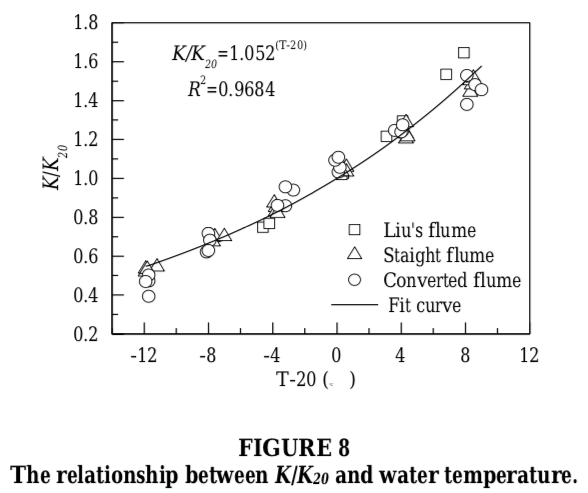Impact of temperature on the dissipation process of supersaturated total dissolved gas in flowing water
Estimation of the mass transfer rate at the air and water interface is critical for the accurate prediction of mass transfer in many fields. Supersaturation of the total dissolved gas (TDG) may occur during spillway discharging, causing a sudden increase in water temperature and extra photosynthesis of aquatic plants. The dissipation process of supersaturated TDG is a typical type of mass transfer, which governs the impact of TDG on fish. Previous studies have shown that temperature has a substantial impact on the mass transfer rate. No investigation has been found about the impact of temperature on TDG dissipation in natural flowing water. In the paper, a series of experiments were carried out in both a straight flume and a converted flume with many crossed baffles located inside the straight flume. Experimental results showed that the dissipation coefficient increases as the water temperature rises under each flow rate condition. The relationship in flowing water between the dissipation coefficient and temperature was described in preliminary study, and the temperature coefficient (θ) was found to be 1.052. In addition, the arrangement of the baffle structures inside the converted flume resulted in backflow, which accelerated the supersaturated TDG release process.


